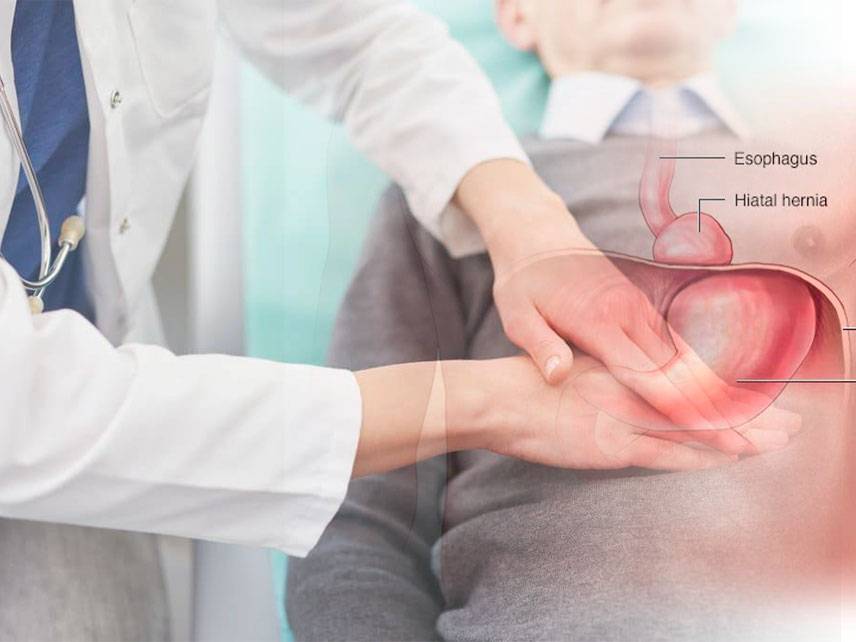A hiatal hernia occurs when the upper part of the stomach protrudes through an opening in the diaphragm into the chest cavity. Hiatal hernias are common and usually cause no symptoms. However, sometimes, the herniated tissue can cause the stomach to become trapped and cause difficulty swallowing, chest pain, and other symptoms.
Signs and symptoms
Most people with hiatal hernia don't have any symptoms.
When symptoms do occur, they may include:
-
Heartburn
-
Chest pain
-
Difficulty swallowing (dysphagia)
-
Shortness of breath
-
Pain in the upper abdomen
-
Vomiting
-
Frequent belching
Causes
The exact cause of hiatal hernia is unknown. It is believed to be caused by weak muscles in the diaphragm, which can allow the stomach to protrude through the opening. It is also believed that certain activities may increase the risk for hiatal hernia, such as lifting heavy objects, straining during bowel movements, or coughing.
Risk factors
The risk factors for hiatal hernia include:
-
Being overweight
-
Pregnancy
-
Smoking
-
Chronic coughing
-
Aging
-
Chronic constipation
-
High levels of stress
Prevention
Since the exact cause of hiatal hernia is unknown, it is difficult to prevent. However, maintaining a healthy weight, avoiding heavy lifting, and avoiding certain activities that may increase the risk of hiatal hernia can help reduce the risk.
Diagnosis
Your doctor may diagnose hiatal hernia based on your symptoms and a physical exam. To confirm the diagnosis, your doctor may order an endoscopy or X-ray.
Treatment
Hiatal hernia treatment depends on the severity of the condition. In most cases, lifestyle changes and medications can help manage the symptoms. Surgery may be recommended for more severe cases.
Coping and support
Living with hiatal hernia can be difficult. It is important to talk to your doctor about your condition and get the support you need.
Complications
Complications of hiatal hernia may include:
-
Difficulty swallowing
-
Gastroesophageal reflux disease (GERD)
-
Ulcers
-
Bleeding
-
Obstruction of the esophagus
Living with Hiatal Hernia
Living with hiatal hernia can be difficult. It is important to talk to your doctor about your condition and get the support you need. Lifestyle changes, such as avoiding certain foods and maintaining a healthy weight, can help manage your symptoms. It is also important to keep track of your symptoms and seek medical attention if they worsen.





